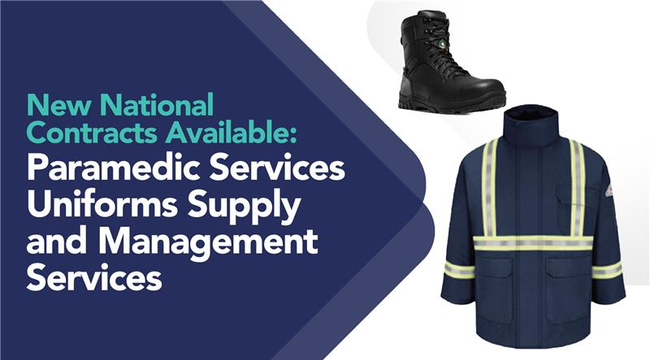HealthPRO Canada News
April 27, 2022
When asked to make important decisions as Deputy Minister of Health, Arlene Wilgosh first considered the impact on patients

After serving on HealthPRO’s Board of Directors for eight years, including her current role as Board Chair, Arlene Wilgosh is set to step away from the Board this spring when her term as Chair ends. While Arlene began her career as an intensive care nurse in her home province of Manitoba, her natural leadership skills took her to several influential roles in healthcare administration. In addition to serving as Deputy Health Minister for the Province of Manitoba, Arlene served as President and CEO of the Winnipeg Regional Health Authority before her retirement in 2015. Regardless of her role or where she worked, Arlene has always been guided by what drew her to health care in the first place – doing what is best for patients.
Arlene, your career has been characterized by a series of firsts – first woman and nurse to hold the position of Deputy Minister of Health for the Province of Manitoba and in 2010, you became President and Chief Executive Officer of the Winnipeg Regional Health Authority (WRHA). These are both difficult roles on their own – did being the ‘first woman’ make them even more challenging?
To be honest, I never thought about gender. I just try to do my job the best that I can. I listen, communicate and earn people’s respect. I believe in the importance of how you interact with people on a daily basis. Make eye contact, know your information, state your opinion and listen to what people have to say – that will work for you regardless of position or gender.
I have just been told I am also the first female Board Chair of HealthPRO.
You grew up in a small town in Manitoba – Minnedosa – and while you were nursing, you worked in both rural and urban areas. When you were leading the WRHA, was it difficult to navigate caring for different types of populations?
Maybe it’s my nursing background but I never stopped to think whether someone was from a rural or urban community. Regardless of location, patient care comes first. It may be more complicated in rural Manitoba because you must travel to reach a hospital but there are also people in downtown Winnipeg who have trouble accessing the system.
In Manitoba, there is one major urban centre which is Winnipeg, so people tend to think you have perimeter-itis and don’t understand outside the perimeter. Having been born, raised and worked outside the perimeter, it has enabled me to speak from a background of knowledge and confidence when talking about rural issues such as ambulance response times
When I was deputy, Manitoba was the lead province during H1N1 when we were trying to develop policy with our federal, provincial and territorial partners. I would often say to my counterparts, “If I can’t explain this policy to my mom and dad who are sitting on their deck in Minnedosa, then there’s something wrong with the policy”.
How has being a nurse influenced the way you lead?
As a nurse, my focus was always on the patient and trying to do what is best for them. I have maintained this perspective throughout my career, which has kept me in good stead. It is important to focus on the actual people and trying to do what is best for them. This approach brought everyone to a common perspective, regardless of who you are speaking with.
Over the course of your career and as a Board member, you’ve probably had to make some unpopular decisions and address difficult issues. What have you learned from having to relay information that is not popular amongst your audience?
You know the saying there’s three sides to every story? I actually came up with six. There is a parable of the six blind men and the elephant – they had never encountered an elephant before and they were trying to understand what it is. Each of them touches a different part of the elephant and describes what they feel. They all have different perspectives and learn from each other.
I always found that parable useful. When you come to difficult situations or you’re trying to implement controversial policies, you need to look at the six sides of the story and try to find the common ground and try to understand where the other person is coming from. You may not agree with them but if you can acknowledge and at least show an appreciation for their perspective, it helps move things along.
Last year, HealthPRO celebrated its 25th anniversary – what qualities do you think have helped the organization remain strong in the marketplace for more than two decades?
I think it has been through their approach to its members, involving them in decisions and keeping them informed.
More recently, it has been through their innovative approaches for dealing with things like pharmaceuticals and their willingness to explore new strategies. Our ability to partner has also been important. We have had quite a strong partnership develop with the federal government in the last few years, especially around pharmaceuticals.
I think it also comes down to integrity, as well as the fact that the Board comes from across Canada. We always keep our eye on what’s best for members, but also what will work across Canada. I think that gives us a different perspective and keeps us from being too insular.
After three years as HealthPRO’s Board Chair and five years as a Board Director, you are set to step down in June. What do you think is the most impactful contribution you’ve made during your tenure?
I approach the Board as a team, so I don’t think of our contributions as individual achievements.
My focus has been on improving the governance of the organization. We needed to improve certain processes and become a more engaged Board. For me, it’s been about making sure that we ask questions, practice good governance and continue bringing the organization forward.
In my interviews with various board members, many of them have quoted you and your philosophy that Board members should have “noses in and fingers out.” Can you talk a bit about your message behind that philosophy?
That relates back to my focus on good governance.
Many members of our Board are either current or recently retired leaders, such as CEOs or VPs from various organizations and they’re used to running the show in their respective roles. My approach has been to make sure we all remember that we are governors now. We ask insightful questions and hold management accountable but we are not running the organization. It is about maintaining division and making sure we’re comfortable with what management is doing. We hold them accountable for achieving goals and monitor but we’re not running the organization on a daily basis.
What is a piece of advice you would give to someone just starting their career?
Never be afraid to say yes to an opportunity. I remember when I received a phone call to become the Deputy Health Minister, I was shocked. I never thought I would be in that role. So never be afraid to say yes to an opportunity. Be fearless.
Don’t burn any bridges behind you. We’re all connected somehow, somewhere.
Lastly, learn how to listen to people and really hear what people are saying. It is extremely important and will always stand you in good stead.


